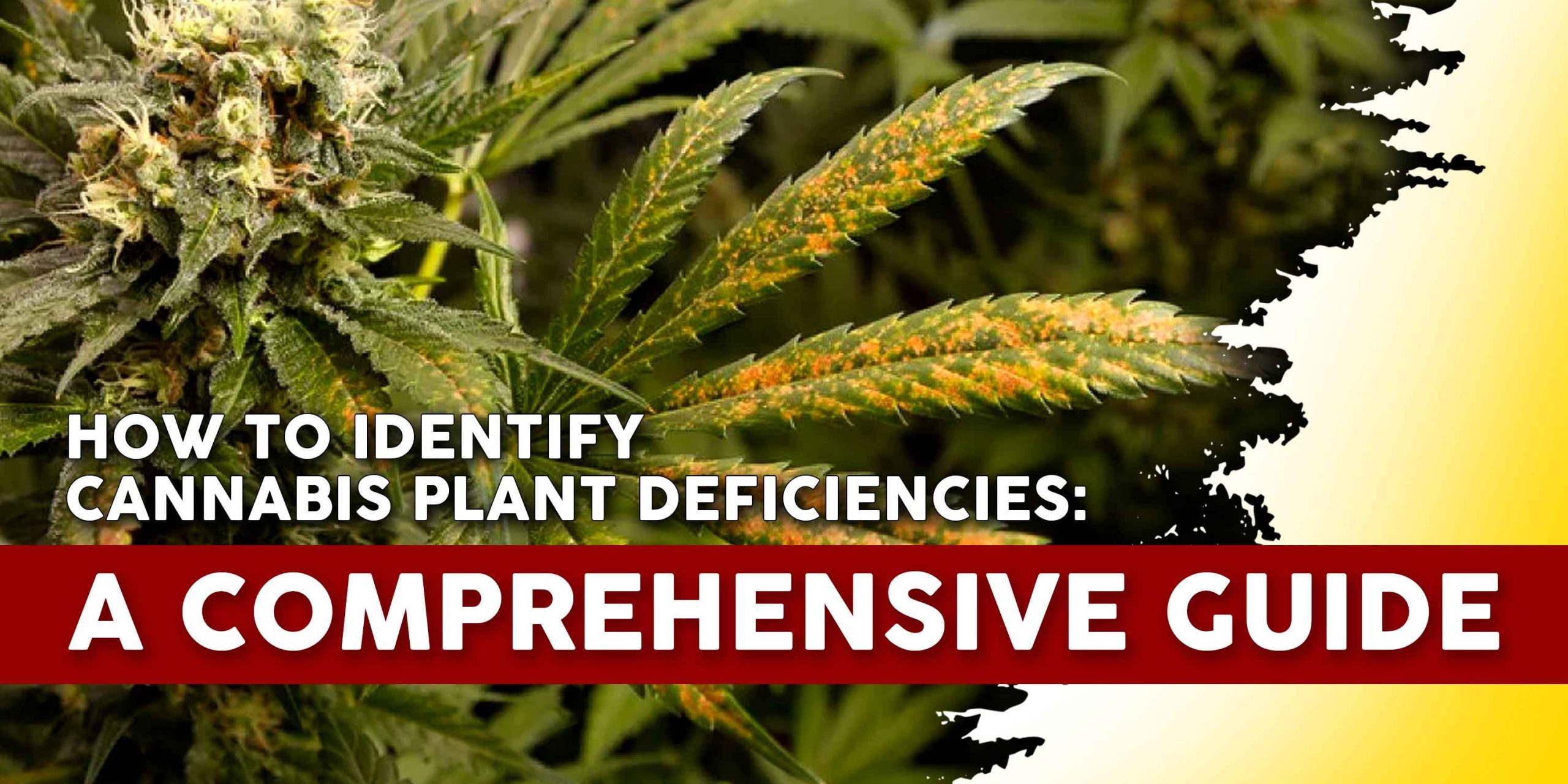



Table of Contents
ToggleCannabis plants are like nutritional connoisseurs, requiring a delicate balance of essential nutrients to thrive. When these nutrients are deficient or imbalanced, it can lead to a range of symptoms that manifest in the plant’s appearance, growth, and overall health. To delve deeper, let’s explore the key nutrients and their roles in cannabis plant physiology:
Understanding these cannabis nutrient deficiencies empowers growers to diagnose and address specific issues effectively, promoting optimal plant health and productivity.
1. Yellowing Leaves: Yellowing or chlorosis of leaves can indicate deficiencies in nitrogen, magnesium, or iron. Nitrogen deficiency often causes older leaves to turn yellow first, while magnesium deficiency leads to interveinal chlorosis (yellowing between leaf veins).
2. Stunted Growth: Slow or stunted growth, along with smaller-than-normal leaves or overall plant size, may point to deficiencies in nitrogen, phosphorus, or potassium. Phosphorus deficiency, for instance, can manifest as dark green or purple leaves with reduced growth rates.
3. Leaf Curling or Twisting: Abnormal leaf curling or twisting, accompanied by brittle or dry foliage, can signal deficiencies in calcium, magnesium, or sulfur. Calcium deficiency can cause distorted leaf growth and weak cell walls, leading to curling or crinkling of leaves.
4. Spots or Discoloration: Irregular spots, blotches, or unusual discoloration on leaves may indicate deficiencies in micronutrients like zinc, manganese, or boron. Zinc deficiency, for example, often results in interveinal chlorosis and the development of small, malformed leaves.
5. Weak Stems: Weak or easily damaged stems, along with poor structural integrity, can be linked to deficiencies in calcium, magnesium, or silica. Silica deficiency, though less common, can lead to weak stems and increased susceptibility to pests and diseases.
6. Reduced Flowering or Fruit Production: Lower-than-expected flowering or fruiting, including fewer buds or smaller yields, might result from deficiencies in phosphorus, potassium, or trace minerals. Potassium deficiency, in particular, can lead to poor flower development and reduced resin production.
7. Altered Leaf Shape: Changes in leaf shape, such as cupping, curling, or abnormal growth patterns, could be due to deficiencies in various nutrients like nitrogen, magnesium, or zinc. Zinc deficiency, for instance, can cause leaves to curl upward and develop a “rosetting” appearance.
8. Overall Poor Health: General signs of poor plant health, such as wilting, drooping, or overall weakness, may stem from multiple nutrient deficiencies or imbalances. Proper diagnosis and corrective actions are crucial to restoring plant vigor and vitality.
Once growers have identified potential deficiencies in their cannabis plants, taking swift and targeted action is essential to restore optimal health and productivity. Here are some strategies to consider:
By incorporating these advanced cannabis deficiency guides and best practices into their cultivation routines, cannabis growers can optimize plant health, yield, and quality. Continuous monitoring, proactive management, and ongoing education are key to mastering the art and science of cannabis cultivation. With a deep understanding of plant nutrition and effective cannabis leaf deficiency management strategies, growers can navigate challenges with confidence and achieve exceptional results in their cannabis gardens.
FAQ 1: Can over-fertilization cause nutrient deficiencies in cannabis plants?
Answer: Yes, over-fertilization can lead to nutrient imbalances and deficiencies in cannabis plants. Excessive use of fertilizers can cause a nutrient lockout, where plants are unable to absorb essential nutrients properly.
FAQ 2: Are nutrient deficiencies more common in indoor or outdoor cannabis cultivation?
Answer: Nutrient deficiencies can occur in both indoor and outdoor cannabis cultivation. However, indoor growers may encounter nutrient issues more frequently due to controlled environments and reliance on artificial lighting.
FAQ 3: How often should I test my soil for nutrient levels?
Answer: It’s recommended to test soil nutrient levels at least once every growing season or whenever noticeable changes in plant health or growth patterns occur. Regular testing helps maintain optimal nutrient balance.
FAQ 4: Can nutrient deficiencies be mistaken for pest or disease problems?
Answer: Yes, nutrient deficiencies can sometimes mimic symptoms of pest infestation or diseases. Conducting thorough diagnostics, including leaf analysis and pest inspections, can help differentiate between these issues.
FAQ 5: Are there organic remedies for addressing nutrient deficiencies in cannabis plants?
Answer: Yes, organic remedies such as compost teas, seaweed extracts, and natural mineral supplements can be effective in addressing nutrient deficiencies while promoting soil health and microbial activity.



Best Selling
Feminized Seeds
Regular Seeds
Customer Help
Contact Us
WE SELL MARIJUANA SEEDS IN THE USA

Are You 18 Or Over?
YesOr
No By clicking yes, you certify that you are over 18. By using this website, you agree to our legal disclaimer.